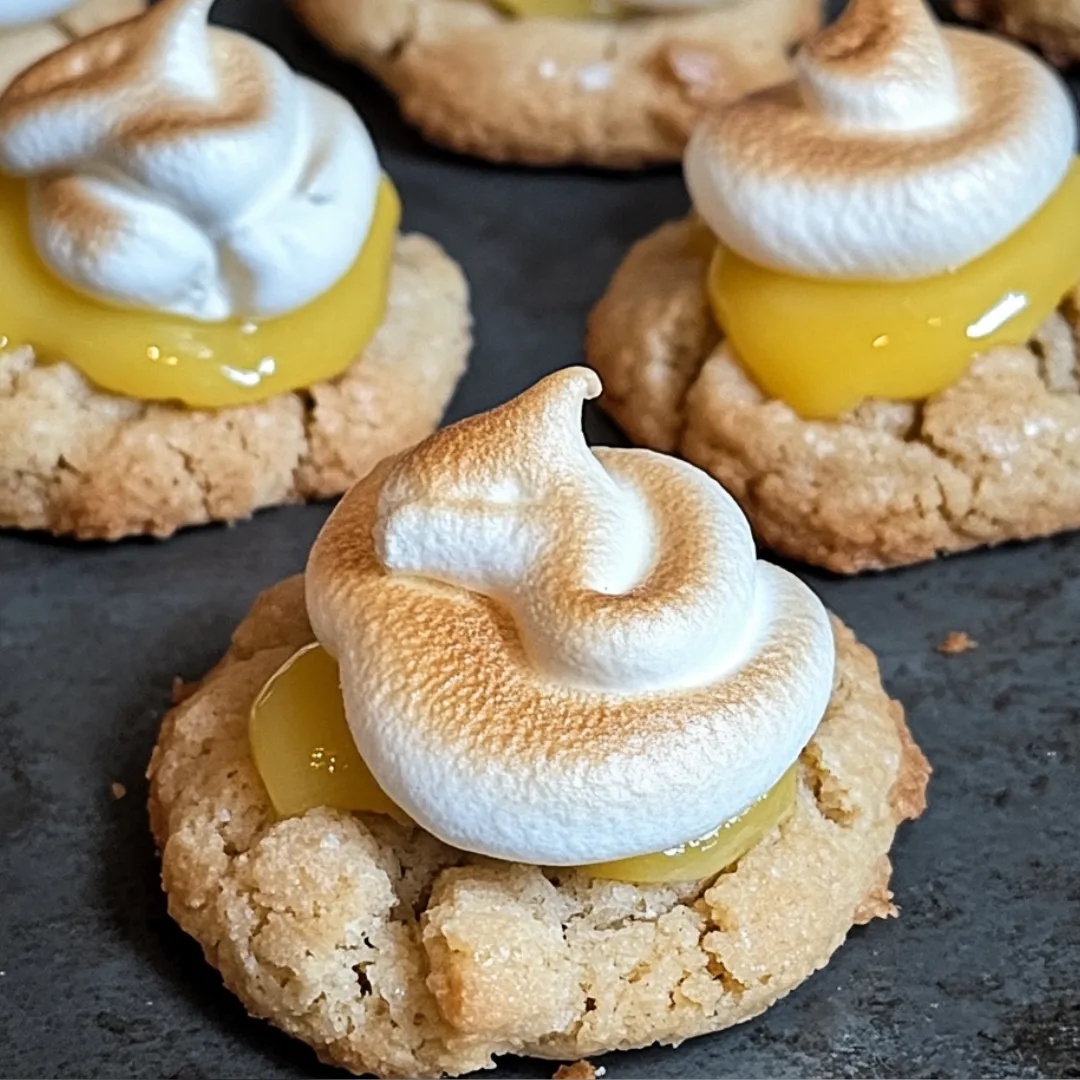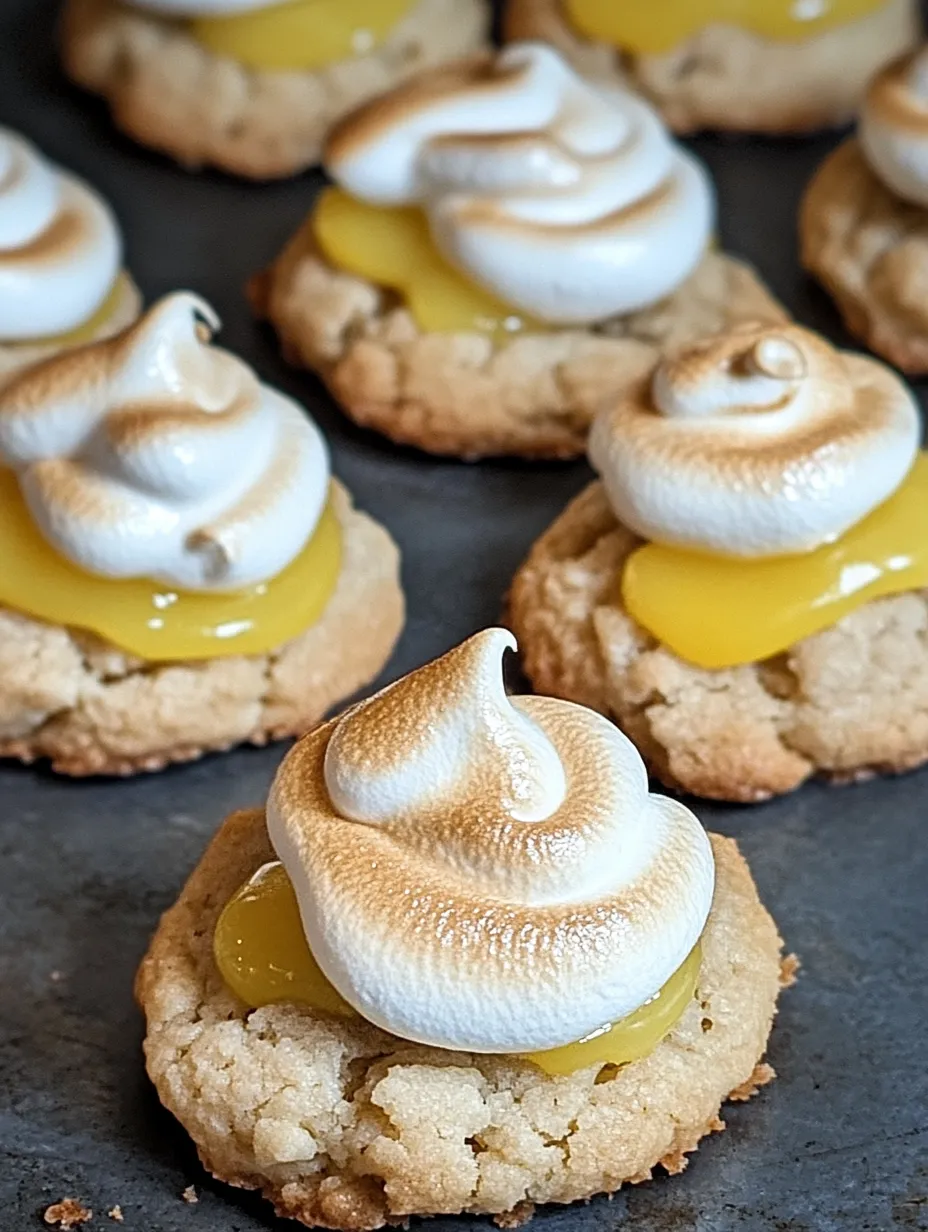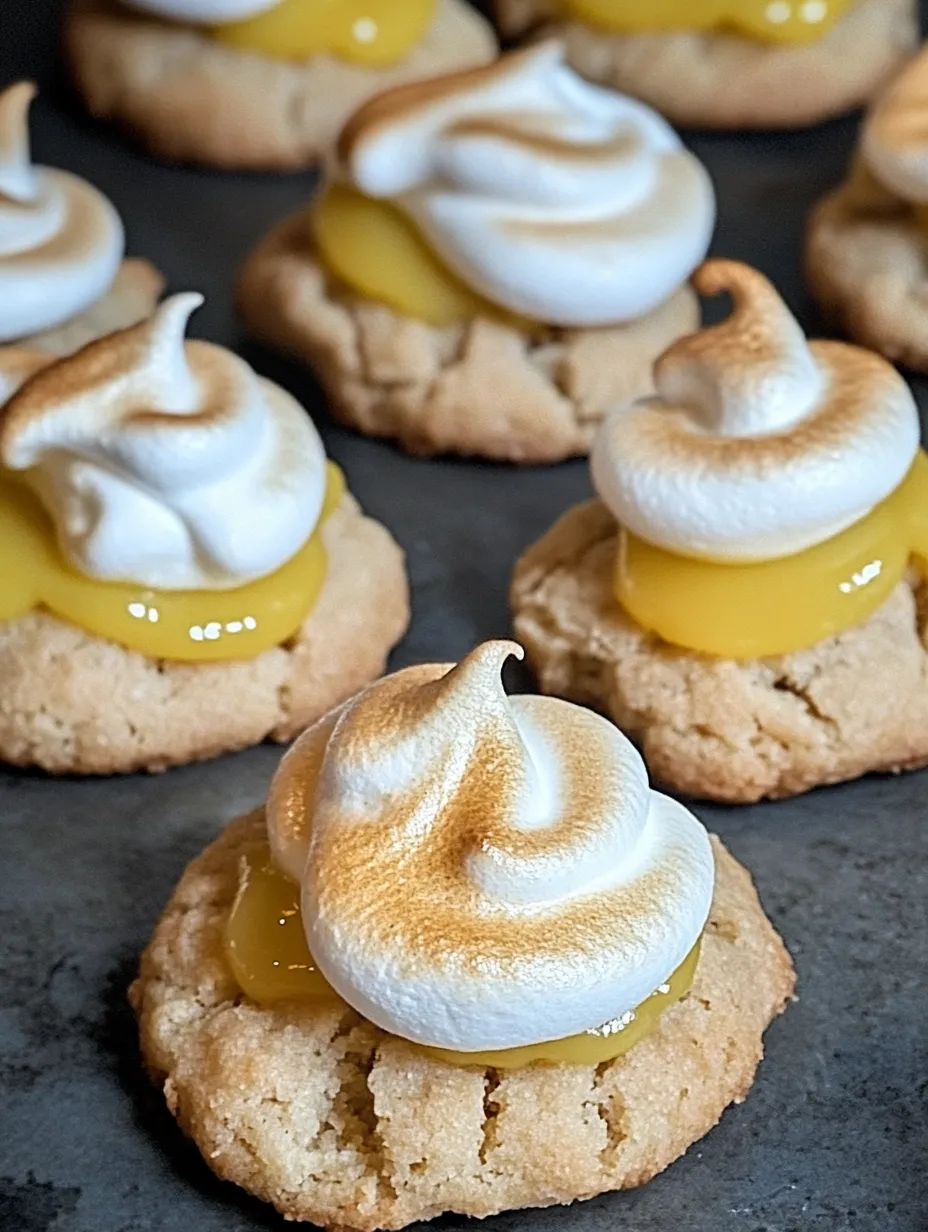 Save Pin
Save Pin
These cloud-like lemon meringue cookies turn basic pantry items into melt-in-your-mouth delights with the perfect combo of sweet fluff and zesty citrus. They're airy, crisp treats that'll wow everyone at your next tea party or dessert spread.
I first whipped these up for my niece's baby shower and they vanished in seconds. These days, my family begs for them at every get-together, and they've become my go-to contribution for holiday cookie swaps.
Ingredients
- Fresh lemon zest and juice: these give that bright tangy pop without being too much for the gentle meringue
- Egg whites: make sure they're at room temp for better separation and bigger volume when whipped
- Granulated sugar: gives the meringue structure and that wonderful crispy outside with a soft middle
- Cornstarch: creates that amazing dissolve-on-your-tongue feeling
- White vinegar: keeps those egg whites firm so your treats hold their shape
- Salt: brings out all the tasty notes and cuts the sweetness
Step-by-Step Instructions
- Get everything ready:
- Start by warming your oven to exactly 225°F. Put parchment paper on your baking sheets, don't use wax paper. Make sure your mixing bowl is totally clean with no grease at all, or your whites won't fluff up. I always rub my bowl with a vinegar-soaked paper towel to get rid of any leftover oils.
- Whip up your base:
- Beat those egg whites on medium until they look foamy, kind of like a bubble bath. Toss in your salt, then turn up your mixer to medium-high. Keep going until you get soft peaks that curl over when you lift the beaters, like little mountains with bent tips.
- Add sugar bit by bit:
- This part's super important. Put in your sugar just one spoonful at a time, letting each bit mix in completely before adding more. Yeah, it might take 8-10 minutes, but this slow approach makes sure your meringue stays steady and shiny. It should change from foamy to thick and glossy, and feel smooth between your fingers with no gritty sugar bits.
- Mix in the extras:
- When your meringue forms stiff peaks, carefully fold in the cornstarch and vinegar with a rubber spatula. Use a down-across-up-and-over motion while turning the bowl. This keeps all those air bubbles that make your cookies light.
- Add the lemon kick:
- Mix in the lemon zest and juice last with just 4-5 gentle folds. The meringue will loosen a bit from the acid, but that's okay. It should still be firm enough to pipe properly.
- Form your cookies:
- Scoop the meringue into a piping bag with a big star tip. Squeeze out 2-inch mounds onto your lined baking sheets, keeping them about an inch apart. If you want a more casual look, just drop spoonfuls using two regular spoons.
- Bake slowly:
- Put your trays in your preheated oven and bake for a full hour. Don't open the oven door while they're baking or your cookies might crack or sink from the sudden temperature change.
- Let them cool:
- After baking, switch off the oven but keep the cookies inside with the door shut for 30 minutes, then crack it open slightly for another 30 minutes. This slow cooling stops the delicate meringue from breaking down.
 Save Pin
Save Pin
My grandma showed me how to make plain vanilla meringue cookies when I was young. I came up with this lemony twist after a trip to southern Italy, where I couldn't get enough of their amazing citrus. The fresh lemon turns ordinary meringues into something truly memorable.
The Science Behind Perfect Meringues
Making great meringue cookies is all about creating a stable foam with egg proteins. When you whip egg whites, you're actually unfolding protein molecules so they can wrap around air bubbles. Adding sugar slowly lets it dissolve in the moisture from the egg whites, making a syrup that coats these protein structures and keeps them stable while baking. The cornstarch and vinegar help too by stopping the proteins from connecting too tightly, which keeps your meringues soft instead of tough.
Troubleshooting Common Issues
Can't get stiff peaks? Your bowl or beaters might have had some grease on them, or maybe a bit of yolk got into your whites. Even tiny amounts of fat will ruin your meringue. Also, watch out for humid days. When it's really muggy, meringues might never fully dry in the oven and stay sticky. If you can, wait for a dry day to make these treats.
Flavor Variations To Try
The lemon version rocks, but you can switch things up easily. Try lime or orange instead for different citrus flavors. Want something fancier? Add a teaspoon of culinary lavender to the lemon mix. During Christmas, I sometimes throw in a quarter teaspoon of peppermint extract and some smashed candy canes at the end. The basic meringue works like a blank canvas for whatever flavors you fancy.
 Save Pin
Save Pin
Storage Recommendations
Keep your finished cookies in an airtight container at room temperature. Put parchment paper between layers so they don't stick together. They'll stay crisp and tasty for up to a week. If they get soft because of humidity, you can crisp them up again by putting them in a 200°F oven for about 10 minutes, then letting them cool completely before storing them again.
Common Recipe Questions
- → How can I get stiff peaks when making meringue?
Make sure your bowl and whisk are totally clean and dry. Whip the egg whites at medium-high speed until they foam up, then slowly add sugar and keep beating until you see stiff, shiny peaks.
- → What's the point of adding vinegar to meringue cookies?
Vinegar makes the meringue more stable, helping your cookies turn out crisp and dry without falling apart too easily.
- → Can I swap fresh lemon juice for the bottled stuff?
Fresh lemon juice gives you the best taste, but you can use bottled juice in a pinch if that's all you've got.
- → What temperature should I bake these cookies at?
Go with a low temp around 225°F (110°C) for meringue cookies. This helps them dry out and get crispy without turning brown.
- → How do I stop my meringue from losing its fluff?
When you add things like cornstarch and lemon zest, fold them in softly and don't mix too much, so you keep all the air bubbles intact.
